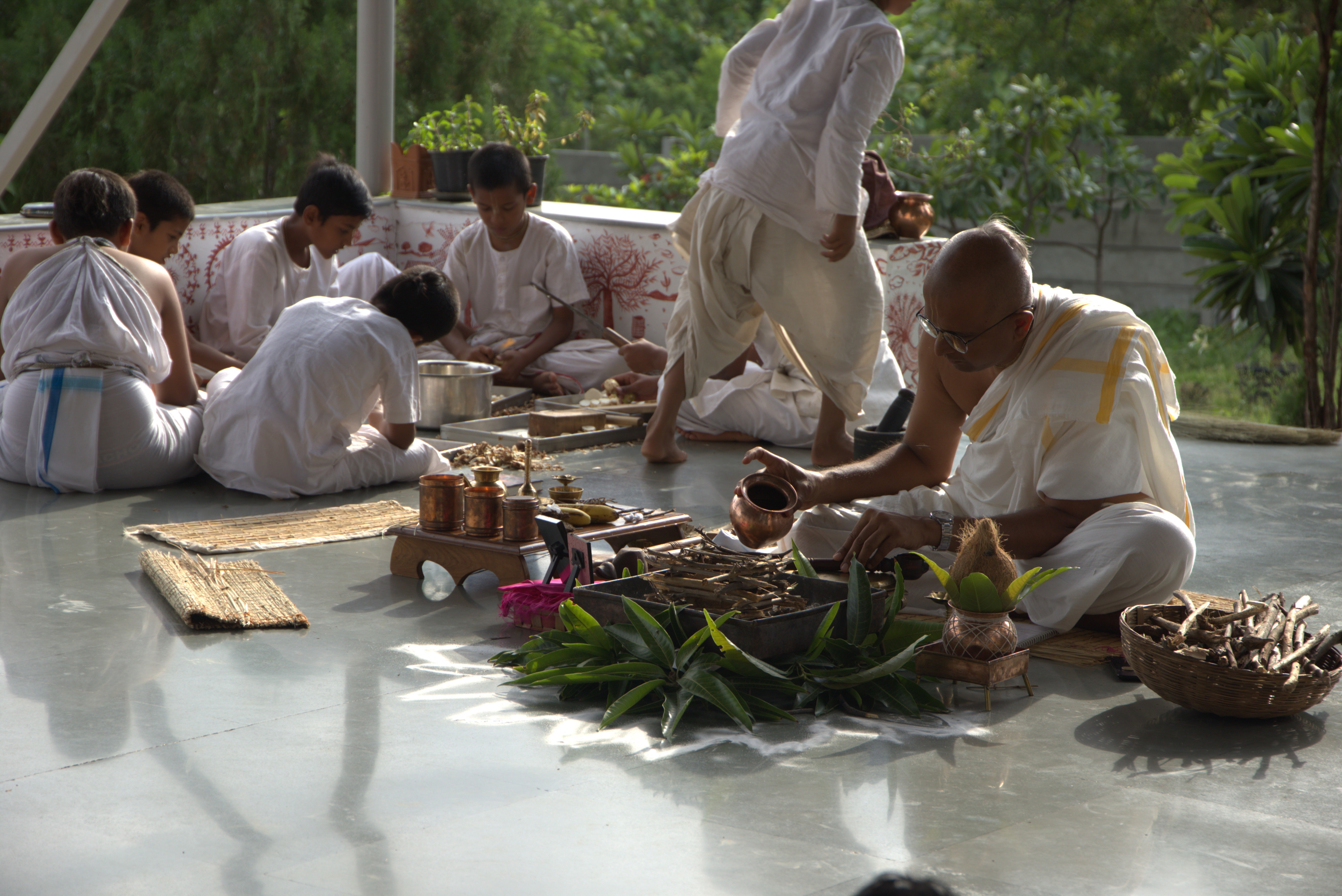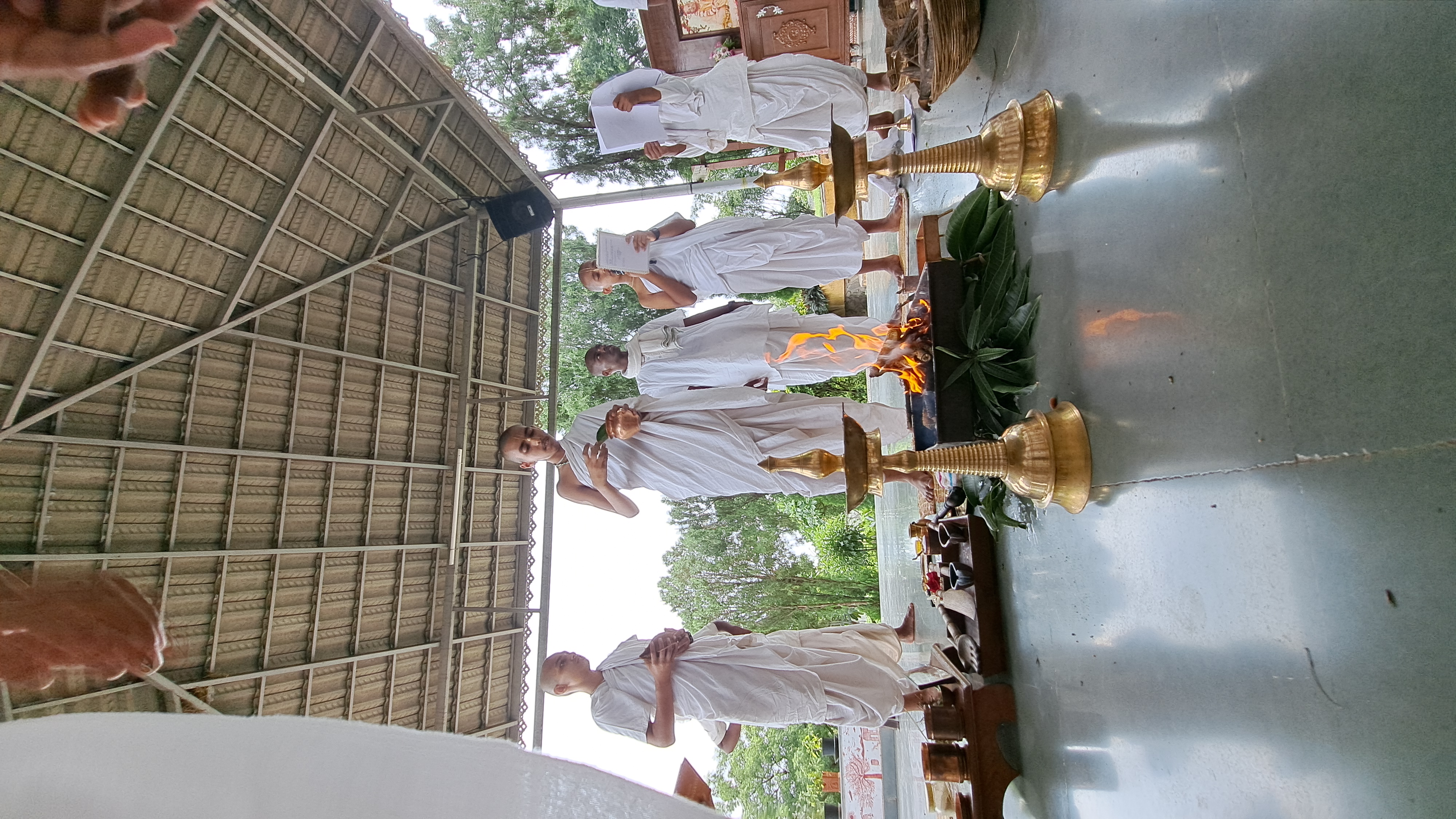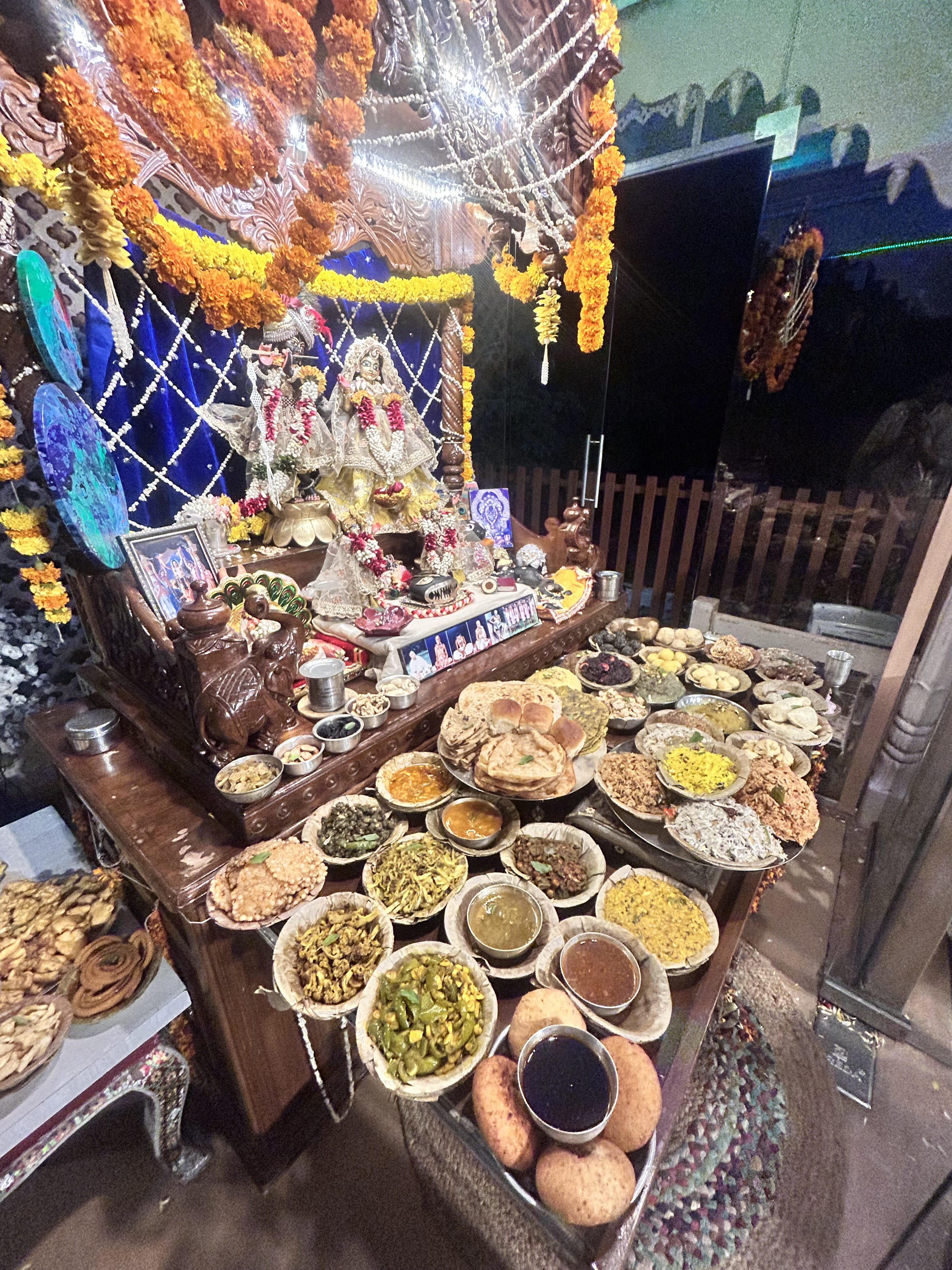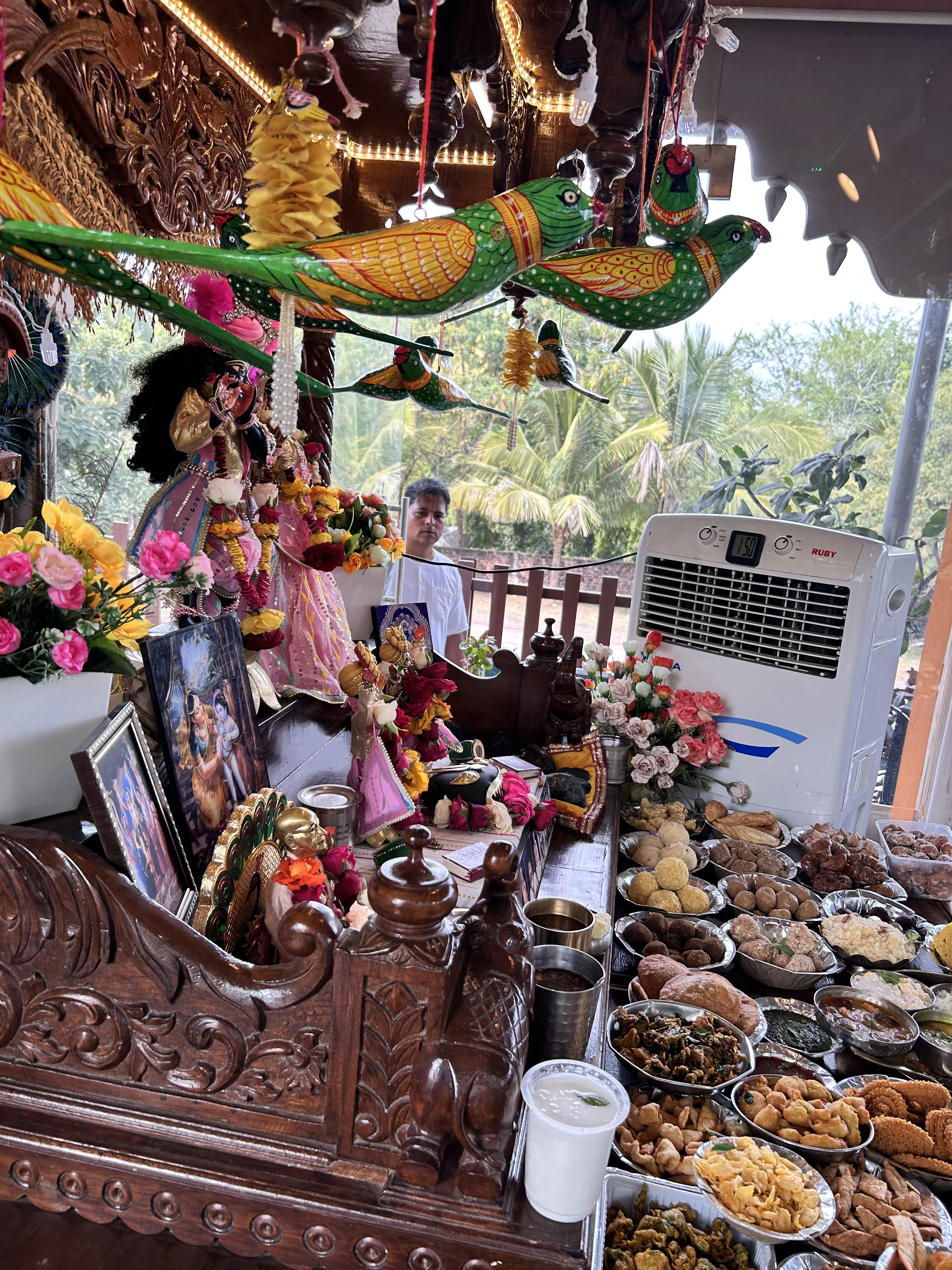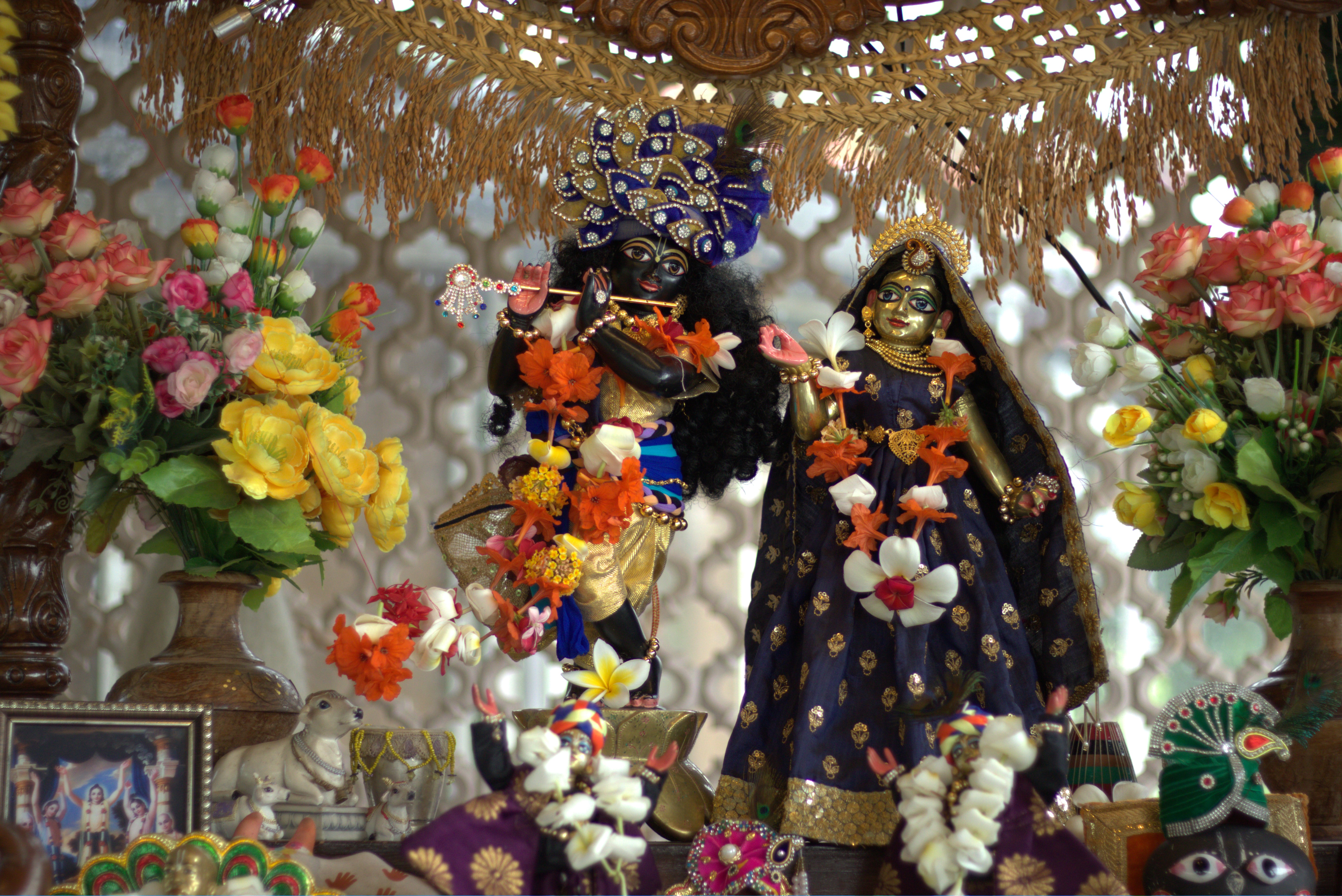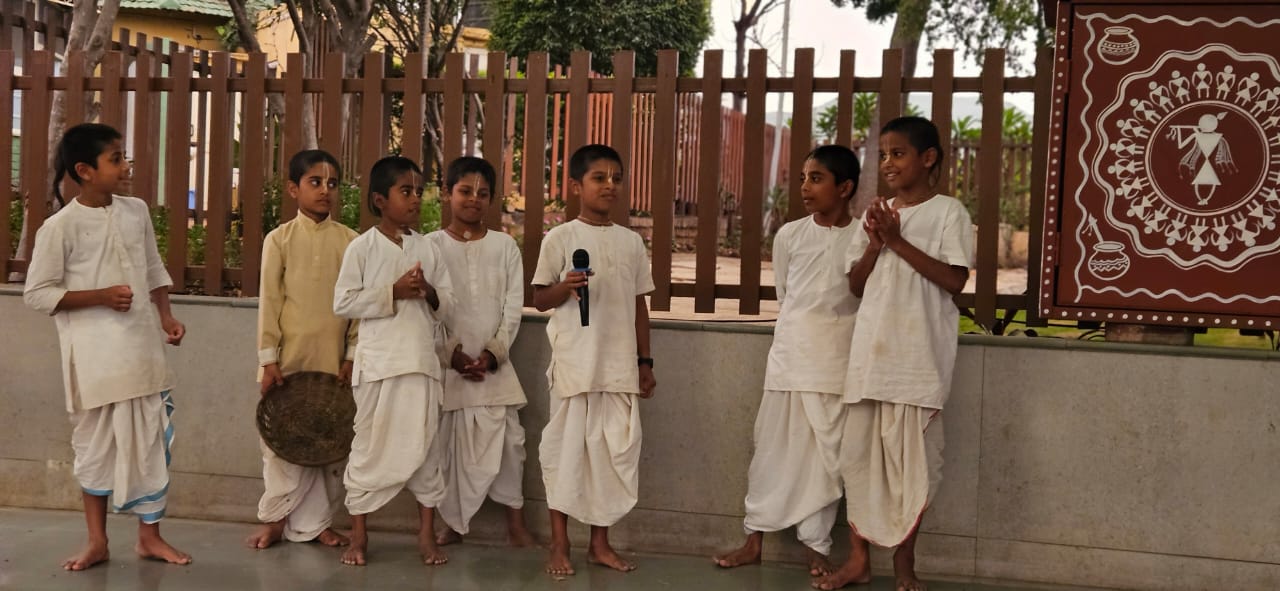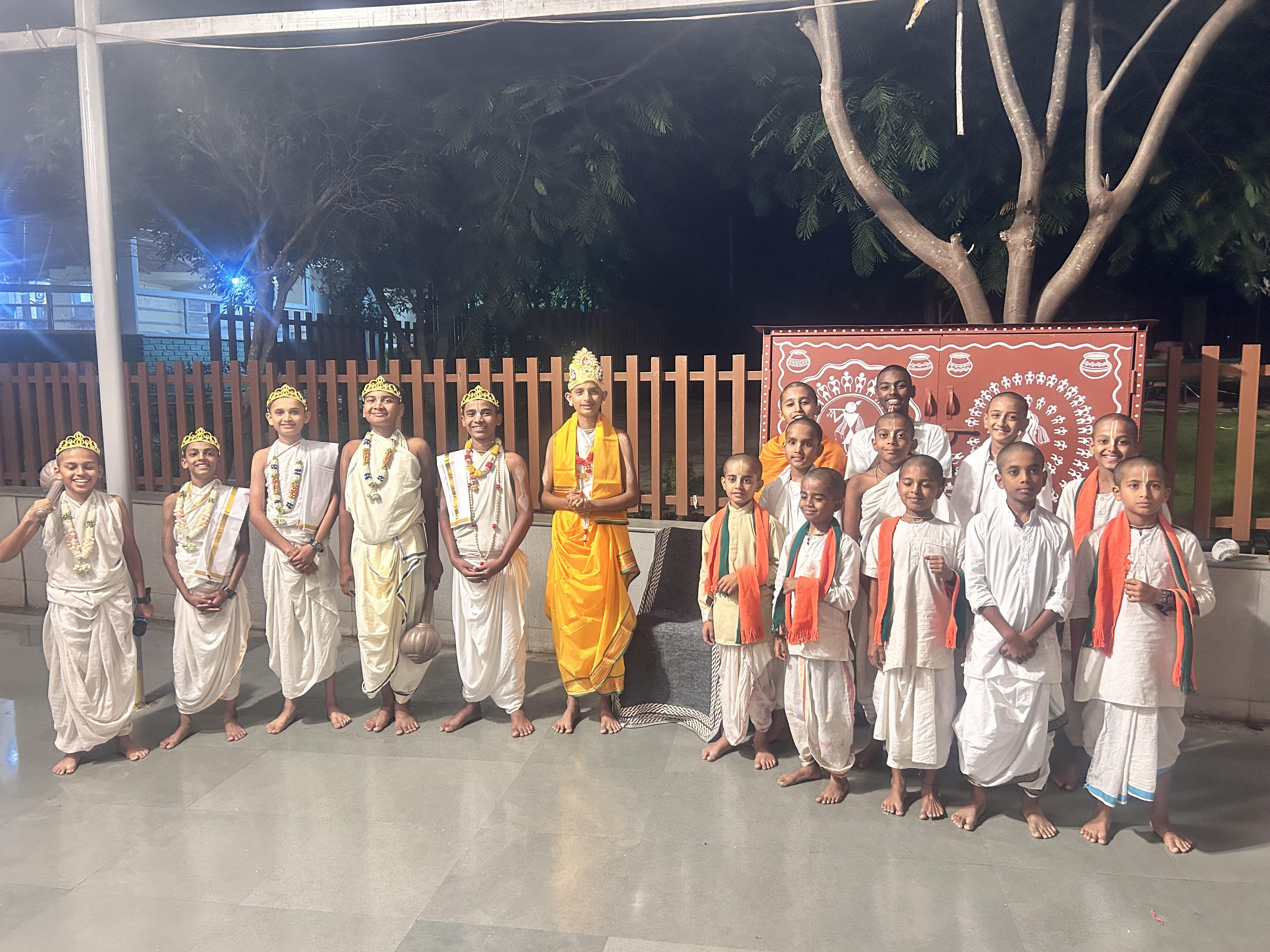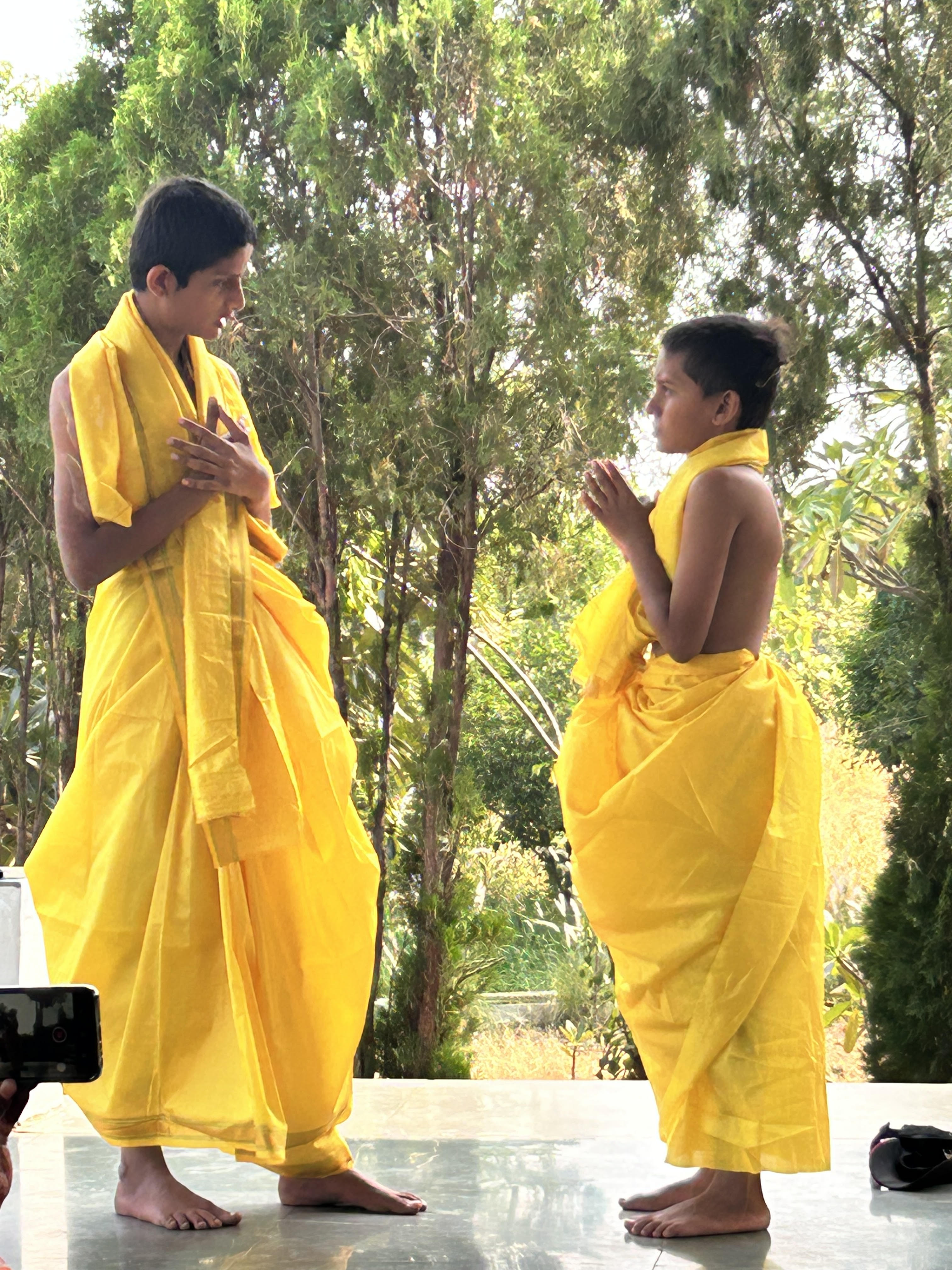Academic Study
We support academics as per CBSE/SSC. Students are encouraged to learn at least four different languages including English, Hindi, Sanskrit and mother tongue. We spend 5.5 hours a day in ensuring students complete all that is given in the text book+ one workbook + three revisions before they appear for exams.
Vedic Study
Following books of knowledge are covered as part of vedic studies:
- Bhagavata-vidhi: Philosophy
- Pancaratrika-vidhi: Deity Worship
- Vaidika-vidhi: Vedic Studies
- Anviksiki: The Process of Inquiry:- metaphysics, logic, critical thinking, and rhetoric
- Mantra: Verses for Preaching & Deity Worship
- Sanskrit: Grammar & Vocabulary
- Kalpa: Samskaras, Rites of Passage
- Jyotisa: Vedic Mathematics, Cosmology, Astronomy & Astrology
- Purana: History, Geography & Natural Sciences
- Social Sciences: Civics, Medicine, The Performing Arts, Architecture & Sculpturing, The Martial Sciences
- Communication Skills: Language Arts & Public Speaking
- Kala: 64 arts
Festivals
India celebrates approximately 262 festivals in 365 days, no other tradition even if spiritual has such a rich culture. To celebrate a festival you need abundance of natural resources, loving relationships among people and most importantly time. All three are missing in a typical modern urban life. We celebrate festivals, as a vibrant expression of spirituality, community, and tradition.Here are some key aspects:
- Spiritual Significance : They provide opportunities for spiritual reflection, worship, and devotion, reinforcing one's connection with Krishna and his associates.
- Cultural Heritage : Festivals preserve ancient traditions and customs, passing down values, stories, and teachings from generation to generation. They foster a sense of identity and belonging within the community.
- Community Bonding : Festivals bring people together, promoting social harmony and cooperation. They encourage participation in communal activities, enhancing relationships and creating a sense of unity among diverse groups.
- Maintaining dharmic traditions : Each festival involves specific rituals, prayers, and offerings that embody Vedic principles. These practices help individuals cultivate mindfulness, discipline, and a deeper understanding of their spiritual path. It is an important aspect to train our children in proper understanding and practice of Nitya Dharma and Naimittik Dharma.
- Knowledge of seasons and timecycles : Many festivals align with seasonal changes, reflecting the connection between nature and human life. They mark important agricultural cycles, and time cycles.
- Joy and Celebration : Manavah Utsavah Priyah. Festivals are times of joy, allowing individuals to celebrate life, express creativity through art and music, and partake in feasting. This joy enhances mental well-being and fosters a positive outlook on life.
- Moral and Ethical Values : Festivals often emphasize virtues such as compassion, gratitude, and generosity, encouraging individuals to live ethically and harmoniously within their communities.
In Bhaktivedanata Gurukula we celebrate many festivals such as,
- Holi
- Ratha Yatra
- Ganesh Chaturthi
- Raksha Bandhan
- Independence Day
- Panihati Chida Dahi Festival
- Narasimha Jayanti
- Balaram Jayanti
- Krishna Janmashtami
- Radhashtami
- Sharad Purnima
- Jhulan Yatra
- Gopashtami
- Gita Jayanti
- All Ekadashis
- All birthdays of boys
- Deities birthday
- Chandrayan 3 landing
- Ram Janmabhoomi temple inauguration
- Basant Panchami
- Kite festival
- Republic day
- Pushya Abhishek
- Nityananda Trayodashi
- Gaur Purnima
- Govardhan Puja
- Chappan Bhog offering
Talent Show
Students get an opportunity to develope and demonstrate their innate talents such as Art, Music, Drama, Oratory, Literary skills, Story telling, sports etc.
Sports and Fitness
As part of a comprehensive sports and fitness routine, the following activities are included:
- Mallakhamb (once a week) and Rope Mallakhamb for strength and flexibility
- Yoga practiced daily for mental and physical balance.
- Daily Suryanamaskar for overall wellbeing
- Long distance running and trekking once a month.
- Jogging every day for cardiovascular health and endurance.
- Lathi Kathi and Talwarbaji to enhance agility and martial skills.
- Engaging in Panchkosh Vikas games for holistic development.
- Popular sports like Cricket, Football, Kabaddi, Chess, and Kho-Kho to build teamwork and agility
- Free play.
- Team work games.
- This diverse range promotes overall strength, endurance and stamina.
Life Skills
As part of essential life skills development, the following activities are included:
- Cooking healthy meals with organic products.
- Farming for self-reliance and sustainability.
- Goseva to cultivate compassion and responsibility.
- Finance management for smart budgeting and financial planning.
- Communication skills such as Reading, Writing, Speaking, and Listening for effective interpersonal interactions.
- Study skills to enhance learning ability
- Self-defense and Self-protection norms to ensure personal safety and confidence.
- Time Management – Prioritizing tasks, scheduling, and setting deadlines.
- Emotional Regulation – Managing emotions effectively in different situations.
- Mindfulness – Staying present in the moment and avoiding distractions.
- Self-Discipline – Staying committed to goals and resisting procrastination.
- Decision-Making – Evaluating options and making informed choices.
- Effective Communication – Articulating thoughts clearly and listening actively.
- Conflict Resolution – Addressing disputes calmly and finding solutions.
- Adaptability – Being open to change and adjusting to new situations.
- Leadership – Inspiring and guiding others while making responsible decisions.
- Goal Setting – Defining clear, measurable, and achievable goals.
- Critical Thinking – Analyzing situations and problem-solving effectively.
- Stress Management – Using techniques like relaxation and organization to handle pressure.
- Creativity – Finding new ways to solve problems and think outside the box.
- Collaboration – Working effectively within teams and respecting others' input.
- Financial Literacy – Budgeting, saving, and managing personal finances.
- Health and Well-being – Maintaining a balanced lifestyle, including physical exercise and mental health.
- Self-Awareness – Understanding personal strengths and areas for growth.
- Resilience – Bouncing back from challenges and setbacks.
- Digital Literacy – Using technology effectively for learning and communication.
- Cultural Awareness – Respecting and understanding different cultures and perspectives.
- These skills promote independence, resilience, and holistic personal growth.
- Cooking, farming, Goshala, Music
Daily Schedule
Children wake up very early, by 5 AM, there is a morning routine of Mangal Aarti, Chanting, Gurupuja and Shastra class. Our training is based on the teachings of ISKCON founder Acharya - His Divine Grace Abhayacharanaravinda Bhaktivedanta Swami Prabhupada.
- The children follow Morning sadhana (devotional rituals), Mantra meditation, Yoga, Cleaning, Cooking, Goseva, Temple worship services and undergo academic sessions before noon.
- Post noon they learn a lot of skills like Music, Mridanga, Sanskrit, Yoga, Mallakhamb, Lathikathi, Vedic training (some of the14 vidya, 64 arts) and so on.
- 5.45 am morning session.
- 8.30 am breakfast.
- 9.30 am academics.
- 12.30 pm lunch
- 1.30 pm academics
- 3 pm Veda siksa or life skills training
- 4 pm sports
- 5.30 pm bath
- 5.45 pm dinner
- 6.20 pm evening session
- 7.20 pm wind down for rest
- 7.30 pm rest
- 4am to 5.30 am wake up as their age allows. Younger boys sleep for 9 hrs. or more, older 7 hrs. or more
This schedule may undergo change depending on the seasons, circumstances and needs of children and educators.
